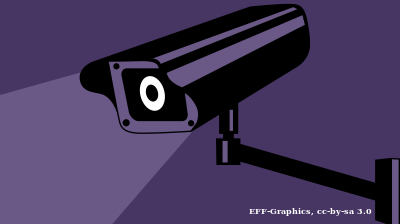The Russian government has approved a sweeping “Action Plan” to tighten its control over internet infrastructure, mandating operators to monitor user activity and granting law enforcement agencies powers to restrict communication services, The Bell reported on August 21.
The measures are outlined in the newly published Action Plan for the Implementation of the Concept of a State System for Combating Illegal Acts Committed with the Use of ICT, which contains 37 initiatives scheduled for implementation by the third quarter of 2027.
Under the plan, telecom operators, hosting providers, and platforms registered as “Organisers of Information Dissemination”—a category encompassing any website or application that allows users to exchange messages—will be required to alert authorities to potential “crimes committed using digital technologies.” Citizens will also be given the option to impose a personal ban on access to “potentially dangerous information.”
Security forces including the Ministry of Internal Affairs, the Federal Security Service (FSB), Roskomnadzor, the Investigative Committee, and the Prosecutor General’s Office will propose the necessary legal amendments. They will also be empowered to restrict communication services in situations that pose threats to public safety or state security, including military, economic, and environmental risks.
The plan builds on the recently adopted legislation introducing fines for searching extremist content, which takes effect in September. Although the State Duma previously pledged not to conduct phone searches, it has not clarified how enforcement will occur.
The new plan comes as the government started restricting access to international messaging services last week, including WhatsApp and Telegram, the most popular services in use, as they were “foreign.” The state is trying to push its own domestic service, which critics claim would allow the government to spy on anyone that installs it.
Experts say the new framework will shift the responsibilities of investigators and prosecutors to telecom operators who will have to have access to the content of messages. Another expert quoted in Agency added: “Confidentiality and anonymity will disappear from everywhere.”
Market participants expressed concern over the feasibility and consequences of the measures. Rostelecom stated that providers would be obliged to collect and report on “suspicious activity” even if it poses no direct threat to infrastructure.
As Izvestia reported, mobile internet shutdowns—often deployed in response to drone threats—remain legally unregulated. The new measures may formalise such practices while increasing compliance burdens for operators and threatening user privacy.
Tech

Russia blocking messaging apps again, sets up copycat Telegram app
Russia’s internet watchdog Roskomnadzor has been blamed for another round of internet outages in Russia, as the state sets up a Telegram messaging app clone as the Kremlin continues to take increasing control of RuNet.

Albania’s AI minister ‘pregnant’ with 83 children, PM says
AI “minister” Diella will give birth to dozens of digital parliamentary assistants for ruling party MPs.

Is Kazakhstan building a digital utopia, or a China-style surveillance state?
Many Kazakhs will tell you that officials should limit their ambitions to fixing the internet speed. Others worry that the time for joking is over.

Kia inaugurates $310mn "highly automated" automotive plant in Kazakhstan
Featuring 68 industrial robots, the plant is designed to produce up to 70,000 vehicles annually.




